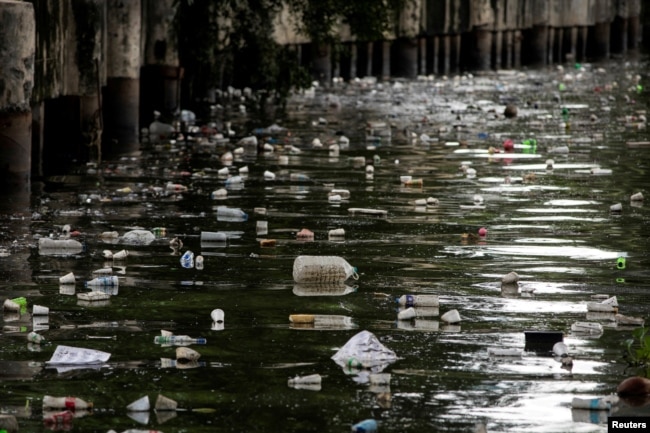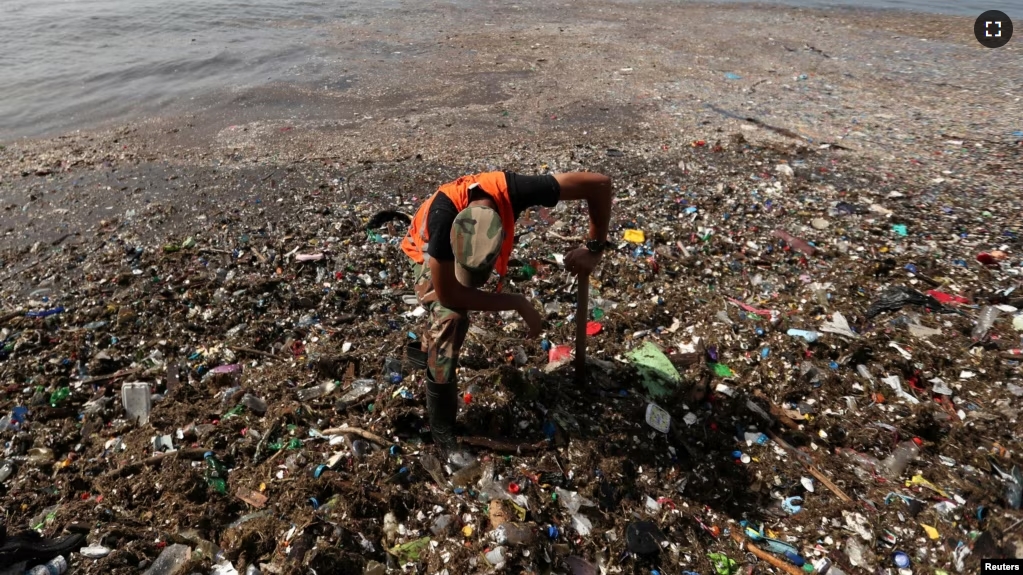A recently released report from European scientists says there are 16,000 chemicals in plastic materials around the world.
The report said not enough is known about the safety of all those chemicals. They estimate that about 25 percent of these chemicals are possibly harmful to human health or the environment.
The Norwegian Research Council supported the creation of the report. It was released as officials are negotiating a United Nations treaty on plastic pollution. The U.N. estimates 400 million metric tons of plastic waste are produced every year.
Jane Muncke helped write the report. She is with the Swiss nonprofit Food Packaging Forum. She said to deal with plastic pollution, people must look at the “full life cycle of plastics.”
Researchers fear chemicals from plastics can spread into water and food.
Muncke said, “We’re finding hundreds, if not thousands, of plastic chemicals in people now and some of them have been linked to adverse health outcomes.”
Activists say such effects include possible harm to the reproductive system and cardiovascular disease.
Martin Wagner is the lead writer of the study. He is an environmental scientist at the Norwegian University of Science and Technology. He said researchers find hundreds, if not thousands, of chemicals in everyday products when they look for them.

Kimberly Wise White is with the American Chemistry Council, an industry group. She said the findings “ignore real-world exposures.” She added the findings “paint an incomplete picture” for policy makers and the public. The plastics industry has said any worldwide treaty should support recycling and re-use of plastic.
But the writers of the recent report said that only dealing with plastic waste does not go far enough. They said there is a need for more information on chemicals in plastics, including recycled products. About 25 percent of the chemicals found lacked information on their chemical identity, the report said.
Wagner said the problem “is the chemical complexity of plastics.” He is a leading member of the Scientists’ Coalition for an Effective Plastics Treaty. It is an organization of scientists and experts seeking to advise the plastics treaty process.
Wagner said, “Often producers don’t really know which kind of chemicals they have in their products and that comes from very complex value chains.”
Six percent of the chemicals found in plastics are regulated internationally. Wagner said that without regulations, there is no reason for companies to identify what is in the plastics.
Last year, the United Nations Environment Program (UNEP) said there were around 13,000 chemicals in plastics.
Negotiations will continue in Ottawa, Canada. The aim is to finish a version of a treaty by December in the South Korean city of Busan.
I’m Gregory Stachel.
Gloria Dickie reported this story for Reuters. Gregory Stachel adapted it for VOA Learning English.
_______________________________________________
Words in This Story
life cycle – n. the series of changes that a product might go through form when it is made to when its use is over
adverse – adj. bad or unfavorable: not good
cardiovascular – adj. of or relating to the heart and blood vessels
exposure – n. the fact or condition of being affected by something or experiencing something
recycle – v. to make something new from (something that has been used before)
regulate – v. to make rules or laws that control (something)
